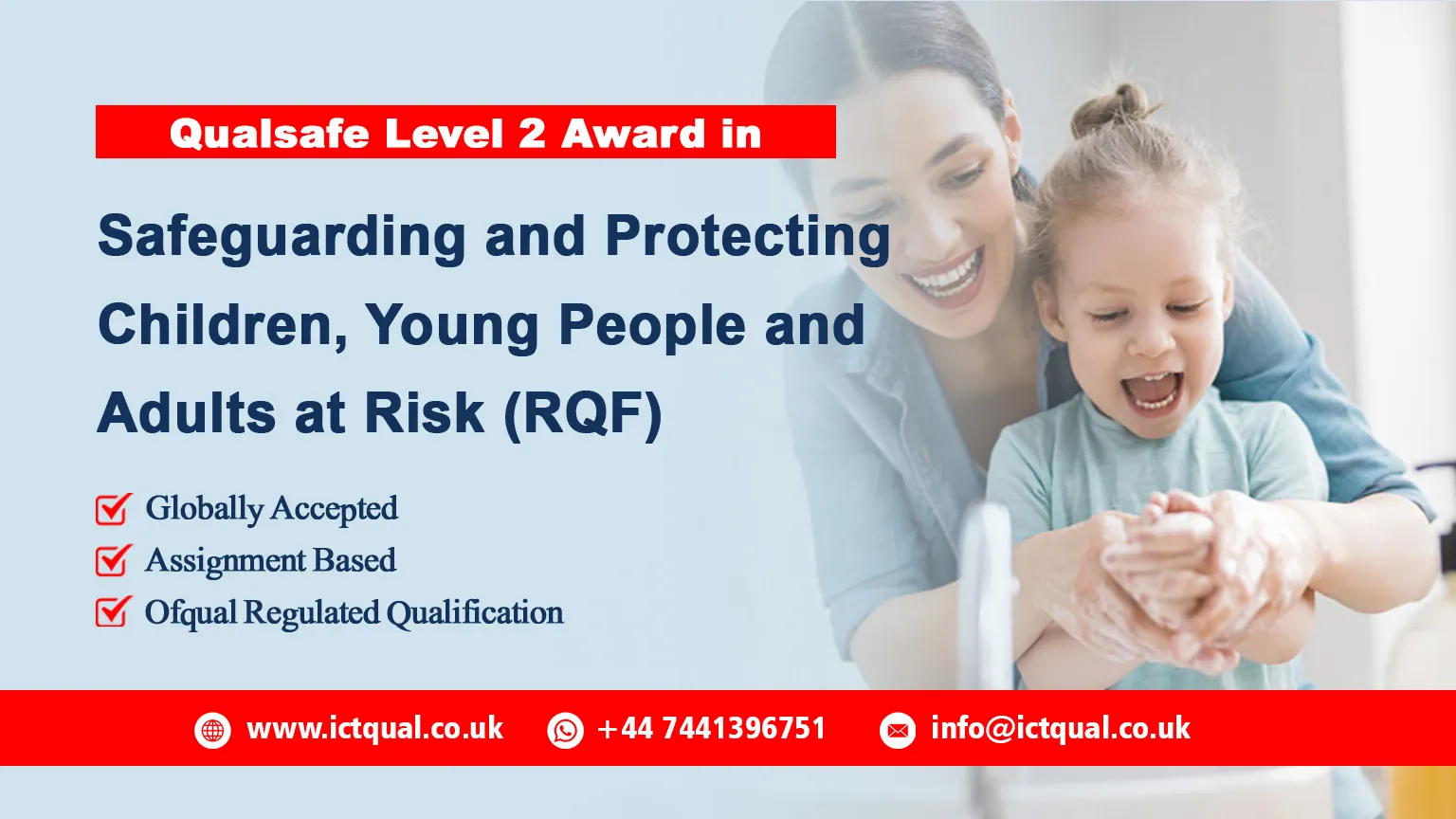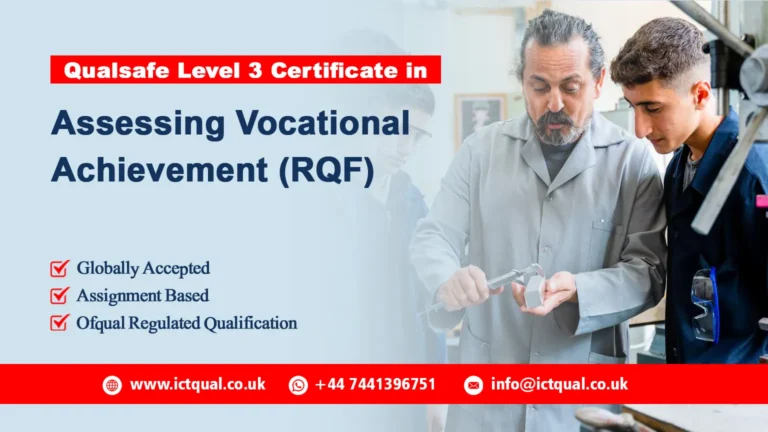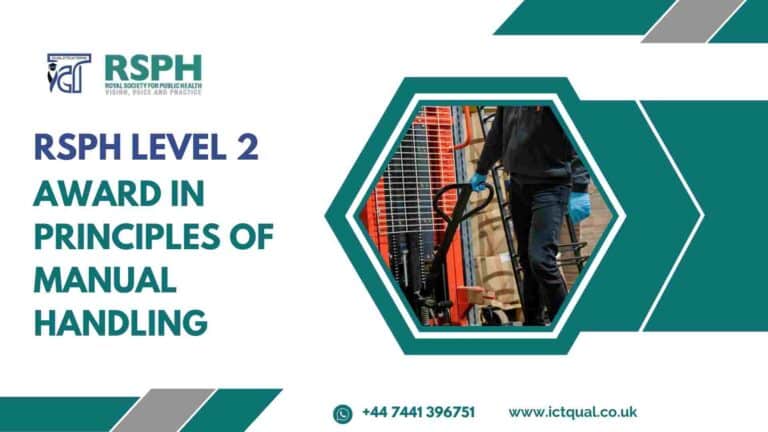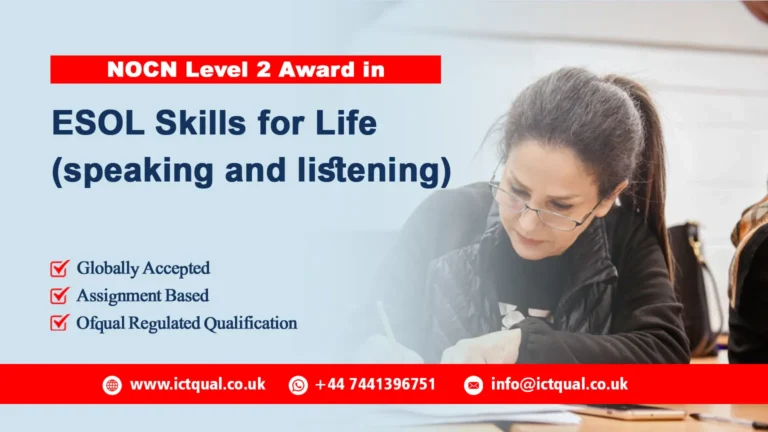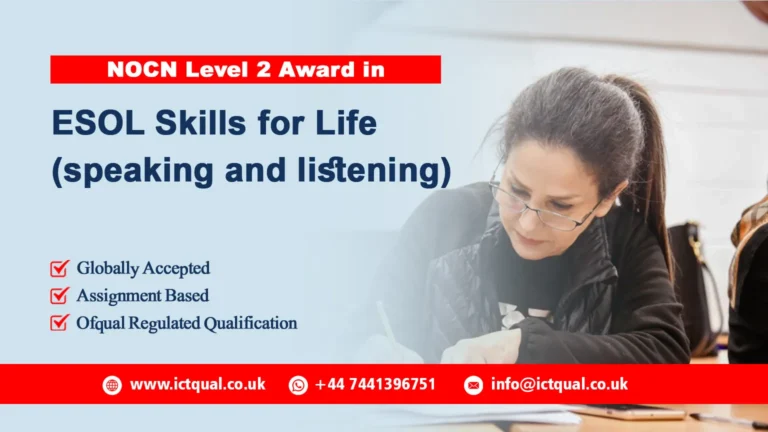The Qualsafe Level 2 Award in Safeguarding and Protecting Children, Young People and Adults at Risk (RQF) is a crucial certification for professionals and volunteers working in environments where they interact with vulnerable individuals. This award provides essential knowledge and skills necessary for safeguarding practices, ensuring the safety and well-being of children and adults at risk.
This qualification covers a broad range of topics essential for anyone responsible for the care and protection of vulnerable groups. Participants learn about the principles of safeguarding, including the legal and ethical responsibilities involved. The course delves into identifying signs of abuse and neglect, empowering individuals to recognize and respond to potential safeguarding concerns effectively. By understanding the different types of abuse and the indicators that may suggest a risk, learners are better equipped to protect those in their care.
One of the key benefits of the Qualsafe Level 2 Award is its emphasis on creating a safe environment. This involves not only recognizing and reporting safeguarding issues but also implementing practices that promote a culture of safety and well-being. Participants gain insight into the importance of effective communication and collaboration with other professionals and agencies involved in safeguarding. This collaborative approach is vital for ensuring that appropriate action is taken to protect vulnerable individuals.
The course is designed to meet the requirements of various sectors, including education, health, social care, and youth work. It is particularly beneficial for individuals in roles such as teaching assistants, youth workers, healthcare staff, and volunteers, who often encounter situations requiring vigilance and proactive safeguarding measures. By completing this qualification, professionals enhance their employability and demonstrate their commitment to safeguarding practices, which is increasingly valued in today’s job market.
The Qualsafe Level 2 Award aligns with the standards set by the Regulated Qualifications Framework (RQF), ensuring that the training meets high-quality benchmarks. This accreditation provides reassurance to employers and service users that individuals holding this award have undergone rigorous training and possess a thorough understanding of safeguarding principles.
The Qualsafe Level 2 Award in Safeguarding and Protecting Children, Young People and Adults at Risk (RQF) is an invaluable qualification for anyone working with vulnerable individuals. By equipping participants with the necessary knowledge and skills, this course plays a pivotal role in promoting safety and welfare. Whether you are looking to advance your career or fulfill your responsibilities in a safeguarding role, this award is an essential step toward creating a safer environment for those at risk.
The Qualsafe Level 2 Award in Safeguarding and Protecting Children, Young People and Adults at Risk (RQF) is a comprehensive training program designed for individuals working in various sectors, including education, health, social care, and youth services. This course equips participants with essential knowledge and skills to recognize, respond to, and prevent safeguarding concerns, ensuring the safety and well-being of vulnerable individuals.
This qualification is ideal for anyone who works or volunteers in roles involving direct contact with children, young people, or adults at risk. This includes teaching assistants, healthcare professionals, youth workers, social workers, and volunteers in various settings.
The Qualsafe Level 2 Award in Safeguarding and Protecting Children, Young People and Adults at Risk (RQF) is an essential course for those committed to ensuring the safety and well-being of vulnerable populations. By completing this training, participants will be better prepared to identify and respond to safeguarding concerns, making a meaningful impact in their professional roles.
The Qualifi Level 4 Diploma in Information Technology qualification consists of 4 mandatory units of 4 GLH for the completed qualification.
Mandatory Units
| Sr# | Unit Title |
|---|---|
| 1 | Understand safeguarding and protection responsibilities |
| 2 | Know legislation, statutory guidance and national policies relevant to safeguarding and protection |
| 3 | Understand abuse and the indicators of abuse |
| 4 | Know how to respond to disclosure or suspected abuse |
This course is designed for:
- Educators:
- Teachers, teaching assistants, and educational support staff who work with children and young people in schools, colleges, and educational settings.
- Healthcare Professionals:
- Nurses, healthcare assistants, and social care workers who interact with children, young people, and vulnerable adults in health and social care environments.
- Youth Workers:
- Individuals working in community centers, youth clubs, or organizations that provide support and services for young people.
- Childcare Providers:
- Childminders, nursery staff, and daycare providers who care for young children and are responsible for their safety and well-being.
- Social Workers:
- Professionals involved in child protection and social work who need to understand safeguarding protocols and practices.
- Volunteers:
- Individuals volunteering in various capacities, such as mentoring or supporting vulnerable groups, who need to be aware of safeguarding responsibilities.
- Sport and Leisure Professionals:
- Coaches, trainers, and staff involved in sports and recreational activities for children and young people.
- Anyone with a Duty of Care:
- Individuals in roles that require them to have a duty of care for children, young people, or adults at risk, including administrative staff and management in relevant sectors.
Here are the outcomes for each of the listed study unit:
- Understand the Principles of Safeguarding:
- Describe the key concepts and principles of safeguarding, including the importance of safeguarding children, young people, and adults at risk.
- Recognize Signs of Abuse and Neglect:
- Identify the different types of abuse (physical, emotional, sexual, and neglect) and their indicators, understanding the impact of abuse on individuals.
- Respond Appropriately to Safeguarding Concerns:
- Explain the appropriate actions to take when encountering a safeguarding concern, including the reporting process and maintaining confidentiality.
- Create a Safe Environment:
- Demonstrate how to promote a safe and supportive environment for children, young people, and adults at risk, including establishing clear boundaries and positive relationships.
- Collaborate with Other Professionals:
- Understand the importance of multi-agency collaboration and effective communication in safeguarding practices, working effectively with other professionals and organizations to protect vulnerable individuals.
- Apply Legal and Ethical Responsibilities:
- Explain the legal and ethical frameworks that guide safeguarding practices, including relevant legislation and policies.
- Recognize the Role of Personal Values and Attitudes:
- Reflect on how personal values and attitudes may influence safeguarding practices, promoting an understanding of diversity and the need for respect in all interactions.
- Demonstrate Knowledge of Safeguarding Policies and Procedures:
- Articulate the significance of organizational safeguarding policies and procedures, understanding how to implement them in practice.

